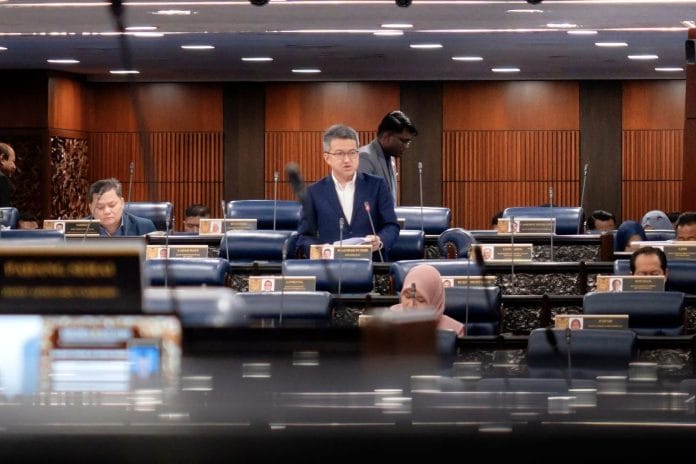Trade and technology competition between China and the United States in the semiconductor industry has benefited Malaysia. Multinational semiconductor companies made a strategic decision to build a second supply chain and no longer focus on one country only as a step to ensure a safe and resilient supply chain (safe and resilient supply chain) or “risky ”
Deputy Investment, Trade and Industry (MITI) Minster Liew Chin Tong, in the Dewan Rkayat today (Mar 26), said nany of these companies chose Malaysia as a new location for their production facilities. Large companies that have been established in this country for a long time, such as Intel from the United States and Infineon from Germany are also seen to be taking steps by continuing to expand their operations significantly in Malaysia.
“Malaysia has an advantage compared to other countries, which is that we already have a mature semiconductor industry ecosystem since the 1970s, especially the E&E cluster in Penang and Kulim.
“This kind of investment overflow is expected to continue to position Malaysia as one of the important investment destinations in the world in advancing the global chip industry. Malaysia needs to seize this golden opportunity to further develop the country’s semiconductor industry and become a high value-added semiconductor manufacturing country with activities along the value chain, such as IC design, wafer fabrication, assembly & testing and technical marketing,” Liew said, in reply to Datuk Ahmad Amzad Mohamed@Hashim’s [ Kuala Terengganu ] question on the Ministry’s plan to position the country’s electrical and electronics (E&E) industry as the main hub of semiconductor production to take advantage of the competition between the United States and China in the ‘Chip War’.
This high value-added activity requires extensive knowledge and research and development (R&D) and immediately will create high-value and high-skilled job opportunities with higher wages for Malaysians.
Liew said the New Industrial Master Plan (NIMP) 2030 which was launched last year is seen to be able to support the Government’s efforts towards increasing investment in the entire semiconductor value chain by encouraging research, development, commercialisation and innovation, as well as providing a workforce high skill.
NIMP 2030 also aims to develop local IC Design companies that are globally competitive and attract investment in wafer fabrication activities that can further strengthen Malaysia’s position as a key player in the E&E and semiconductor manufacturing sector in the region.
“Throughout 2023, the Malaysian Investment Development Board (MIDA) has approved 120 projects with a total investment of RM85.4 billion in the E&E industry, which is 56% of the total investment approved in the manufacturing sector.
“In comparison, the amount of investment in the E&E industry approved in 2023 is much greater than that approved in 2022 with a difference of about RM55 billion. In terms of exports, the E&E industry has contributed as much as 47.3% of the country’s total export of goods, worth RM575.45 billion in 2023,” Liew said.
In order to drive the development direction of the semiconductor industry ecosystem in the country, the Government has also established the National Semiconductor Strategic Task Force ( National Semiconductor Strategic Task Force – NSSTF) whose membership consists of various Ministries, Government Departments, Higher Education Institutions and Industry Associations.
In addition, a Special Advisory Panel to the NSSTF has also been established, where the members consist of experts in various value and supply chains in the semiconductor industry in Malaysia, representing companies SMEs, local companies or Multinational Corporations (MNC).
The NSSTF acts as a dedicated platform to discuss and implement directions, policies, strategies and initiatives, including efforts to attract strategic investments in the semiconductor sector.
One of the main focuses of the NSSTF in the early stages is to address related issues such as incentives, talent and the ecosystem of the semiconductor industry.
The government remains committed to developing the semiconductor industry which is now a strategic resource for the country, in line with the expression “semiconductor is the new oil”, Liew added.









